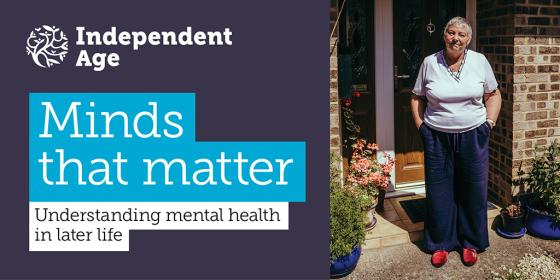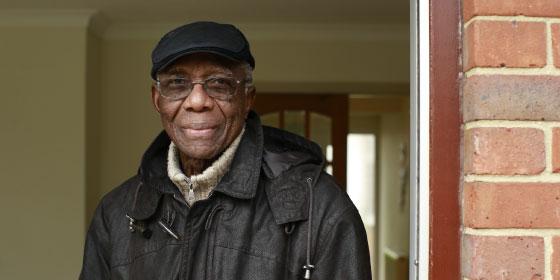 Minds that matter: Understanding mental health in later life blog
Minds that matter: Understanding mental health in later life blog
In August this year, the World Health Organisation (WHO) Global strategy and action plan on ageing and healthdescribed a plan for a Decade of Healthy Ageing from 2020-2030. Two of the key areas it plans to address are to:
- Deliver person centred integrated and primary health services responsive to older people.
- Provide access to long-term care for older people who need it.
The number of people aged 65+ in the world is set to double to 2.1 billion by 2050. Almost 12 million people over 65+ currently live in UK. As the Faculty of Old Age Psychiatry at Royal College of Psychiatrists, we are aware of the impact of ageing on the physical and mental health of older adults.
It is timely that Independent Age launched their report Minds that matter: Understanding mental health in later lifeon 7th October. The report highlights the common mental health problems faced by older adults like depression, anxiety and grief.
Older adults are more likely to live alone with long-term illness or disability. With the COVID-19 pandemic, our older adults have suffered further distress with lockdown and shielding restrictions. Loneliness and isolation are leading to significant mental health problems including anxiety, depression and grief reaction from loss of loved ones. Reductions in formal community support are also causing significant worry for both older adults and their carers.
Even though we have had many ambitious visions, papers and plans I feel this pandemic has taught us how we can come together to break barriers. We should use this opportunity to deliver the mental health care older adults need - providing the right care in the right place. Historically, there has been a low uptake for talking therapies by older adults, like those provided by the Improving Access to Psychological Therapies (IAPT) programme in England. Despite significant evidence on effectiveness of talking therapy, Independent Age’s report highlights lack of awareness and other barriers to accessing talking therapies.
I echo the call from the report on raising public awareness on older people’s mental health, and increased support for carers. Aligning support in the community in collaboration with the voluntary sector, along with effective use of social prescribing, is important in these difficult times. We are fortunate to have a hardworking, compassionate and caring workforce in health and social care, alongside passionate voluntary agencies. This was evident in how our care home sector provided care and support over the past 6 months in very challenging circumstances.
I am positive that learning from the pandemic will influence changes to improve the mental health of our older adults. As WHO says ‘Good health adds life to years’ and there is no health without mental health. We should never accept that our older adults ‘put-up’ with their mental health difficulties and we should strive to ‘put-out’ their problems.
https://www.longtermplan.nhs.uk/wp-content/uploads/2019/08/nhs-long-term-plan-version-1.2.pdf

 Let’s Shout About Talking
Let’s Shout About Talking